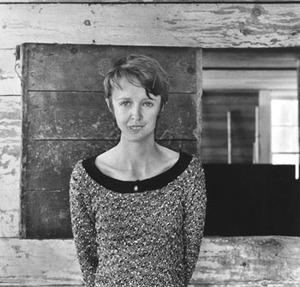A Quote by Lucy Grealy
I treated despair in terms of hierarchy: if there was a more important pain in the world, it meant my own was negated. I thought I simply had to accept the fact that I was ugly, and that to feel despair about it was simply wrong.
Related Quotes
Compared with the person who is conscious of his despair, the despairing individual who is ignorant of his despair is simply a negativity further away from the truth and deliverance. . . . Yet ignorance is so far from breaking the despair or changing despair to nondespairing that it can in fact be the most dangerous form of despair. . . . An individual is furthest from being conscious of himself as spirit when he is ignorant of being in despair. But precisely this-not to be conscious of oneself as spirit-is despair, which is spiritlessness. . . .
I despair at the rise of modern violence. I truly give in to despair at times, that deep, futureless pit of despair.... I watch the American slaughterhouse, the casual attacks on popes, presidents, and uncounted others, and I wonder if there are many more out there with the Ability or if butchery has simply become the modern way of life.
It's despair at the lack of feeling, of love, of reason in the world. It's despair that anyone can even contemplate the idea of dropping a bomb or ordering that it should be dropped. It's despair that so few of us care. It's despair that there's so much brutality and callousness in the world. It's despair that perfectly normal young men can be made vicious and evil because they've won a lot of money. And then do what you've done to me.
If there's more that you can do, then do it. If there's not more that you can do, then be content with what you're doing. But if there is despair, the despair can only be that you can do more. Because when you're doing as much as you can do, you will not feel despair. Because despair is the gap between what you could be doing and what you are doing.
There are moments of despair that come sometimes, when night sets in and a white fog presses against the windows. Then our house changes its shape, rears up and becomes a place of despair. Then fear and rage run simply--and the thought of Death as a friend. This is the simplest of thoughts, that Death must come when we call, although he is a god.
The ever increasing intensity of despair depends upon the degree of consciousness or is proportionate to this increase: the greater the degree of consciousness, the more intensive the despair. This is everywhere apparent, most clearly in despair at its maximum and minimum. The devil's despair is the most intensive despair, for the devil is sheer spirit and hence unqualified consciousness and transparency; there is no obscurity in the devil that could serve as a mitigating excuse. Therefore, his despair is the most absolute defiance. . . .
Poetry has its uses for despair. It can carve a shape in which a pain can seem to be; it can give one’s loss a form and dimension so that it might be loss and not simply a hopeless haunting. It can do these things for one person, or it can do them for an entire culture. But poetry is for psychological, spiritual, or emotional pain. For physical pain it is, like everything but drugs, useless.
An individual in despair despairs over something. . . . In despairing over something, he really despair[s] over himself, and now he wants to get rid of himself. Consequently, to despair over something is still not despair proper. . . . To despair over oneself, in despair to will to be rid of oneself-this is the formula for all despair.
I had wanted simply to convey to the reader by way of concrete example that life holds a potential meaning under any conditions, even the most miserable ones. And I thought that if the point were demonstrated in a situation as extreme as that in a concentration camp, my book might gain a hearing. I therefore felt responsible for writing down what I had gone through, for I thought it might be helpful to people who are prone to despair.




































